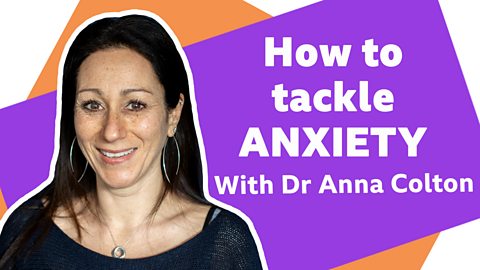
For many young people, the day they receive their exam results is one of celebration that marks the positive transition from one stage of their education to the next. However, for some, this day brings with it feelings of anxiety and potential disappointment.
The last few years have seen continued disruption to learning as a result of the pandemic. This may add to the uncertainty which students feel about what results they get and how they'll receive them. It's possible that more young people will find this day difficult, as they attempt to navigate it.
As a parent or carer, you may be looking ahead to this moment with some trepidation and wonder how best to support your child at this time. Here are some tips:

1. Put your child first

This day is the culmination of many years of hard work. It should always be marked and celebrated, regardless of what results your child receives. While you may have your own hopes (and a sense of what success looks like), it's really important to try and see the results your child receives from their perspective. If they're happy, you should share in that feeling with them. Similarly, if they're experiencing feelings of disappointment and loss, make sure you empathise with them.
Resist the temptation to share stories of the results of other family members, or what others have done on results day. Instead, keep the focus on your own child. This is their unique experience, so avoid comparisons. Put them first.
2. Talk things through in advance
Giving your child the opportunity to voice their hopes and worries about the future will help them begin to make decisions independently. Some children may need help to start this conversation because it feels daunting to them, so maybe ask when they'd like to talk about it - and perhaps suggest that, in their own time, they begin to give it some thought beforehand.
This conversation can allow you to work together to begin to identify a plan, so that your child goes into results day with different options available to them. It will make the experience feel less overwhelming and allow your child to regain a sense of control if they receive unexpected results. But together, also guard against doing too much reflecting or predicting of what lies ahead, as this itself can create stress.
3. Prepare for the day

If you sense that your child is becoming increasingly anxious ahead of results day, help them to be prepared for it. Ensuring they eat and sleep well in the approaching days - and continue with the activities they enjoy - will help support a positive frame of mind.
Work out a plan for the day, perhaps beginning it with a favourite breakfast, encouraging contact with trusted friends to share support, and making sure you're at hand (whether physically close by, or available by phone) for when they receive their results.
If you've worked through a range of options, help your child to be prepared to act on these, e.g. by knowing the availability of a supportive teacher, the contact details of prospective colleges, or having to hand a list of available apprenticeships and their entry criteria.
These small steps will foster feelings of being in control in an unknown situation, and they may help lead to a more resilient response.
4. Evaluate the options together

When your child receives their results, they may be faced with unexpected decisions. Encourage them to think through the options carefully and not to rush to decide. Give them the time and space to process their current emotions, before attempting to move forward.
Avoid phrases such as âdonât panicâ and âdonât be disappointedâ, as they're unlikely to feel helpful. Instead, ensure they feel validated in their emotions by accepting and backing up their response, especially as they may react differently to their peers.
Talk together, but perhaps also encourage them to seek a range of opinions to help them decide what to do next - this might be from friends and teachers who know them well. Remind them of their existing support network, and that asking for help in difficult situations is not a sign of weakness.
5. Keep things in perspective
There can be pressure on young people to see this day as either a success or a failure. Remind them that this isn't the case and, while their results may directly relate to what they do next, they don't decide what they can achieve in the future. They have their whole adult life ahead of them, and this is one step in a longer journey.
Encourage them to look positively at this bigger picture, so they can maintain a sense of focus. There's even more value in this if their results bring some disappointment.
6. Find opportunities to say goodbye

Whether or not your child achieves the results they hoped for, it's still important that they find a way to mark this ending.Face-to-face goodbyes with teachers or friends are important and will support your child in closing this chapter. Donât miss the opportunity to also reflect together on all their previous successes in school, and the challenges they've overcome.
Taking this approach can help enable your child to move forward positively with a range of memories from school, rather than focusing solely on this one day. It's the wealth of all these experiences which will stay with your child and which will help to shape the adult they become.

By Jaime Smith, Director of the Schools Division at the

More from ±«Óătv Bitesize Parents' ToolkitâŠ
Parents' Toolkit
Fun activities, real-life stories, wellbeing support and loads of helpful advice - we're here for you and your child.

How to tackle anxiety with Dr Anna
Calming techniques to help parents and children manage their anxiety.

Results Day: Parents' fears and expert advice
A child psychologist offers advice to real parents with results day anxieties and expectations.

Five ways you can help boost your childâs confidence this summer
Educational psychologist Lee Randall has some tips to help you nurture your childâs confidence.

How to manage Results Day 2024: Six tips for parents
Advice on supporting your child as they prepare for their results and evaluate their options.

